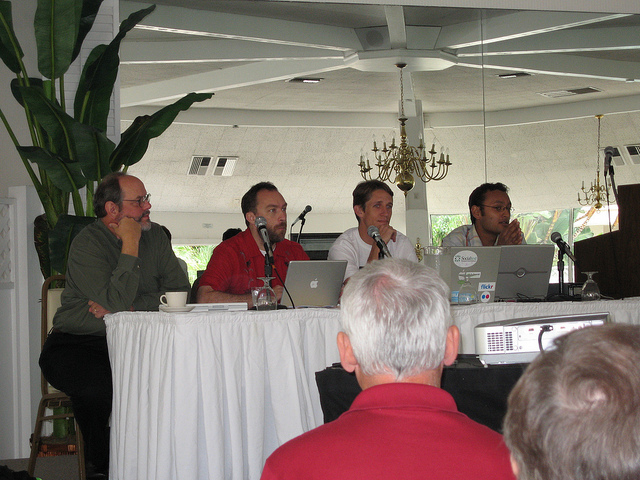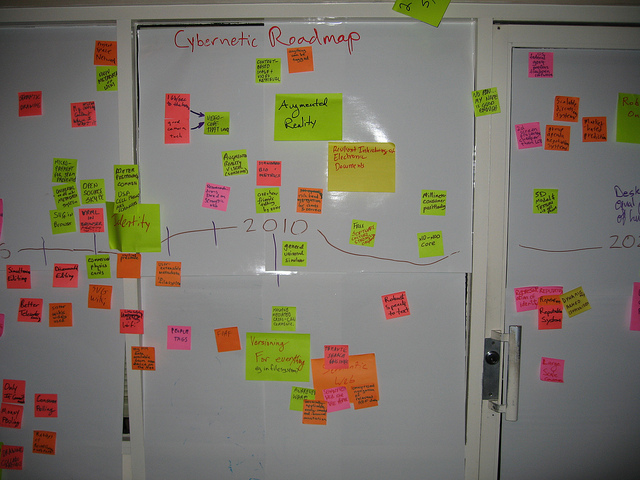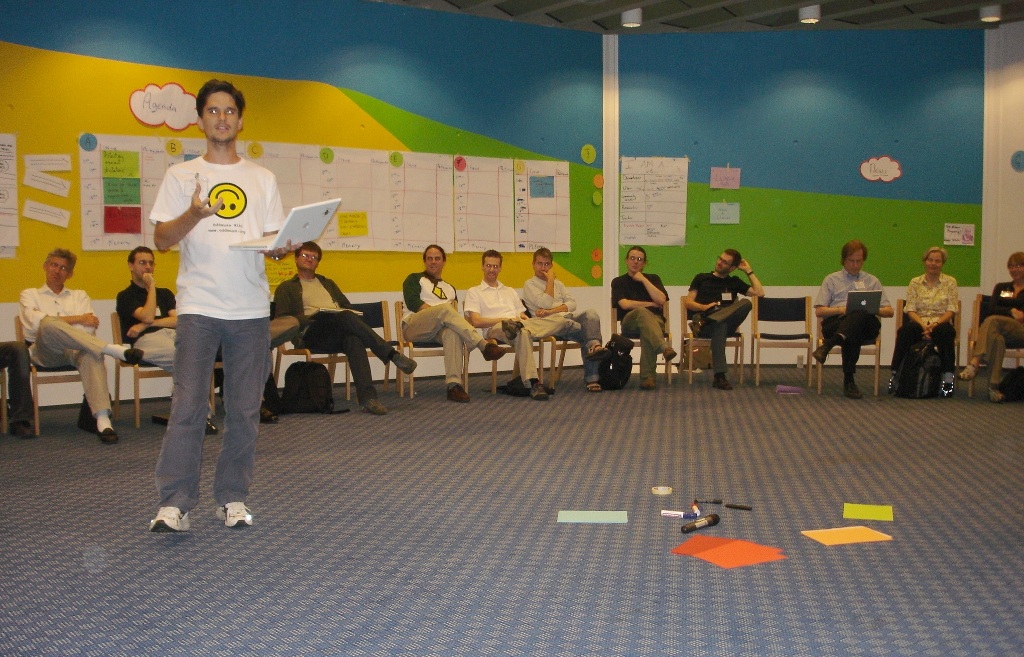
Two weeks before WikiSym 2008 is the right time for you to start “cooking” your own conference program. Following are some of the “ingredients” for you to use on your own “recipe”.
OpenSpace: 21 hours of conference space for you to lead!
All the WikiSym 2008 conference program is wrapped by an OpenSpace track: starting from the conference opening, morning news, four sessions per day (6 hours/day), evening news, and ending with the conference closing. A total of 18 hours for you to organize your own sessions, on your topics of interest and meet others sharing the same interests. The OpenSpace program will always be open until the end of the conference, but you can start thinking on this space to use it for your own needs.
Keynotes and Talks: George P. Landow, Steward Nickolas, and Dan Ingalls
Three inspiring talks from our invited speakers will be strong points of the conference aiming to provide us three different perspectives and insights to challenge our thinking and how we decide, our interests, and our passions.
Tutorials: 4 short tutorials for you to attend them all in a row!
If you are always uncertain about which tutorials to choose to attend, WikiSym 2008 Tutorials will help you. No need to choose! A set of short four tutorials (90 min/each), all scheduled in a row, on the first day, will offer you the chance to learn classic and cutting edge topics, from the most experienced presenters worldwide on the topic!
After the tutorials end, you will be able to go deeper on the topic in the OpenSpace.
Easy, just take the initiative and propose a session with the presenter!
Workshops: 3 different ones to choose from…
Workshops are always very fun and highly interactive events, where
groups of researchers and practitioners meet to bring, discuss, and try to
solve challenging problems.
If you didn’t submitted a position paper or any other contribution, you are welcome anyway. Your opinion is always valuable for the workshop! Each workshop has each its own schedule, but they will happen on Monday, all day.
Research Track: 20 papers organized in 6 different sessions
A rigorous selection of research papers describing substantiated new research or
novel technical results, will help advance the state of the art, or report on
significant experience.
Panel
The schedule panel will offer a unique forum to spotlight emerging issues on end-user programming with wikis. It is expected to tackle controversial topics head-on in a relaxed and highly interactive way, where each one has a voice.
Posters and Demos: a very rich set this year!
A rich set of selected posters will provide an excellent forum for authors to present their work in an informal and interactive setting. Demonstrations will complement posters or not and will provide you an opportunity to show your latest work to an experienced audience.
If you didn’t submitted your work, don’t worry, we will try to find a place for you in the rooms!
WikiFest: come learn how to grow a successful wiki!
WikiFest is a new conference session, starting this year’s edition, devoted to helping you start and grow a successful wiki. Come and learn with those that succeeded on the wikis they deployed.
DoctoralSpace: pursuing a PhD on wikis? This is for you!
The DoctoralSpace is an interactive forum for doctoral students to provide guidance on their doctoral work. Students close to their dissertation completion submitted their work and will discuss it in the forum. Students beginning their research are especially invited to attend.
Social and Special Events
Between all the conference sessions, WikiSym 2008 will provide you many opportunities for you to gather with your peers, meet your friends, make new ones, socialize and find common interests in an informal way. The Special Event will provide you an intensive visit to some of the most important points of interest of Porto and its riverfront. Unforgettable!!!
WikiWalk: know more of Porto and be challenged by Wiki practitioners!
If you are still in Porto in the morning of Thursday, September 11, you need to participate in the WikiWalk.
We’ll take the wiki way into the historic streets of Porto, joining with Porto’s vibrant intellectual and Web communities to explore the city and its networked art and media.
At the start of the day, we’ll discuss topics of particular interest — including new topics raised at WikiSym — over cups of strong Portuguese coffee. And then we’ll walk through interesting parts of Porto, perhaps visiting some notable Web studios, bookstores, cafés, notable buildings, and other venues of new and old media.
Inspired by the very successful BlogWalk meetings, WikiWalk extends the international symposium to the community and brings conferees out of the lecture hall for more casual and spontaneous discussion.
What else? Lots…
Yes, you will add lots to WikiSym 2008 program! Get ready!
Or as you will hear many times on Sunday, 7th September, in the riverfront:
“Smoke on!”
🙂
Ademar Aguiar






